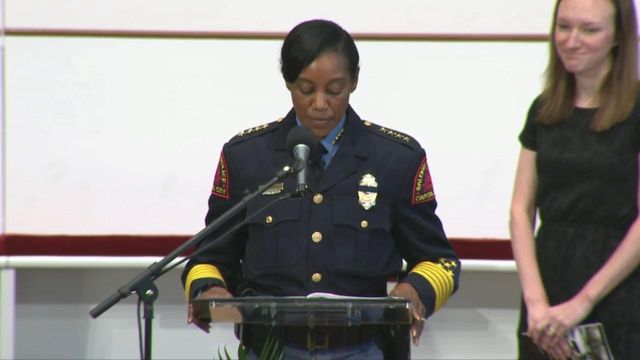NC Supreme Court orders UNC-CH to turn over sex assault info

The North Carolina Supreme Court ruled Friday that the University of North Carolina at Chapel Hill must turn over records of students disciplined on campus for sexual assault to the media.
The 4-3 ruling by the state’s high court reaffirmed the Court of Appeals ruling in 2018.
University officials argued the records were protected by the Federal Education Rights and Privacy Act, which shields academic records from public disclosure. The school was sued by a media coalition, including WRAL’s parent company, Capitol Broadcasting, and UNC-Chapel Hill’s student newspaper, the The Daily Tar Heel.
In September 2016, the media coalition requested documents under the North Carolina Public Records Act connected with anyone found responsible for rape, sexual assault and other sexual misconduct by the UNC-Chapel Hill's disciplinary bodies. The university denied that request, setting off a more than three-year legal battle that concluded Friday with the high court's decision.
At issue in the case was whether the state's records law, which grants broad access to government documents, trumps FERPA, a federal statute designed to protect the privacy of students. Language in the federal law specifically calls out records related to violent and sexual crimes, saying universities may disclose three specific bits of information: the student's name, the violation committed and any sanctions imposed on the students.
"We are deeply disappointed with today’s decision. We respect the court’s deliberations and appreciate the opportunity to be heard during the appeals process. We are carefully reviewing the decision," Joel Curran, UNC-Chapel Hill's vice chancellor of communications, said in an email.
School officials have argued for years that they exercised the discretion granted by FERPA to protect victims and the confidentiality of the Title IX process.
Writing for the majority, Associate Justice Michael Morgan concluded that UNC-Chapel Hill officials do not have that discretion in light of the state law requiring release of the records.
"We agree that, standing alone, a postsecondary education institution possesses such discretion to disclose," the majority opinion said.
But when that institution is public – and covered by North Carolina's open records law – that discretion goes away.
The majority opinion, in no uncertain language, repeatedly dismisses the dissent's argument that FERPA's legal language overrules the state's as "erroneous," "flawed" and "inaccurate."
The dissent has miscalculated FERPA's authority, Morgan wrote, "while wrongfully subjugating the authority of the state law’s express mandates which require that the public records at issue be released in the dearth of any federal law express mandates which require that these public records be withheld."
Although it's generally the case that federal law prevails over state law, the state Supreme Court found that kind of preemption doesn't apply here.
"In enacting FERPA, Congress has not forbidden North Carolina’s legislative body from taking action in the field of education where the disclosure of the result of a student disciplinary proceeding conducted at a public postsecondary educational institution which operates as an agency of North Carolina is mandated by the state’s Public Records Act," the majority concluded.
Writing for the dissent, Associate Justice Mark Davis used equally derisive language, accusing his colleagues of going "astray" with a "basic error that infects the majority's entire analysis."
"It simply makes no sense to examine a provision of state law to determine whether Congress has conferred discretion upon universities," Davis wrote. "The essence of the preemption doctrine is that state law cannot conflict with federal law."
The language of the federal statute and accompanying federal regulations, the dissent maintains, give the university the authority to produce records "if it chooses to do so in the exercise of its independent judgment." And that federally mandated discretion must be unimpeded by the state.
"In short, a federal law's 'may' cannot be constrained by a state law's 'must,'" the dissent wrote.
The majority included Morgan, Chief Justice Cheri Beasley, Senior Associate Justice Paul Newby and Associate Justice Robin Hudson. Davis was joined in the dissent by associate justices Anita Earls and Sam Ervin.











